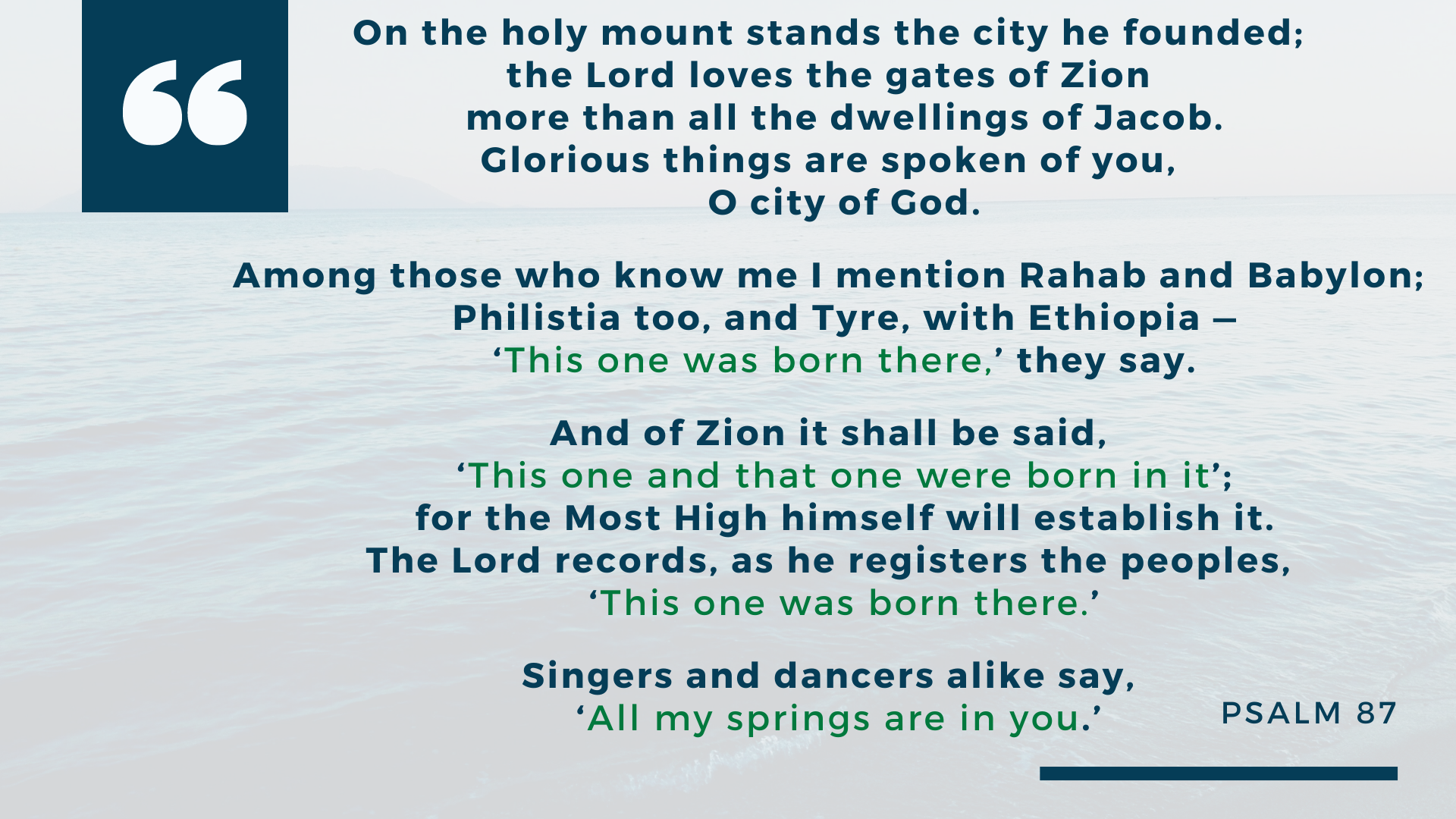Home is an emotive word. There is a powerful drive in all of us to belong, to find places where we are welcome. In religious life, specific buildings or places often represent encounters with the Divine and feel like spiritual homes. But … Jesus often identified with those who had no home, and staying ‘Home’ can also have negative connotations (particularly in lockdown!) We offer here some thoughts for reflection.
Photo by Jehyun Sung on Unsplash
We invite you to start by spending some time in silence, simply noticing what is conjured up for you by the words Home and Belonging. Here are some prompts:
If you have moved around a lot, it may be hard to think of a place that is ‘home’. You may feel like an outsider. There may be a person, group of people or even a role you fulfil that represents Home or Belonging more than any location. What is Home, for you?
~
The house you live in may go hand in hand with belonging; it may not. The building may feel like a trap, if you unhappy there; it may feel insecure. How does the place you live relate to your sense of belonging?
~
If you are lucky enough to have known a home and cohabitants that provide happiness, safety and belonging, you may want to pay attention to and be grateful for the effect this has had on you.
~
Where, if anywhere, are you most at Home? Where, if anywhere, do you Belong?
Photo by jean wimmerlin on Unsplash
Heaven, an ultimate and eternal place of belonging, is an important concept for many religions. In today’s readings from the bible, it is alluded to.
The prophet Zechariah speaks of Jerusalem as the proper dwelling place for YHWH, or God; a conceptual home, to which all people will - in the fulness of time - seek to return:
“Many peoples and strong nations shall come to seek the Lord of hosts in Jerusalem”
Such promises of home beyond present, lived experience mean much to those who have little hope of safety today. We remember refugees and those living on the streets.
Nightstop is a charity that enables people in Sheffield to offer a place of rest and refuge to someone without - find out more about them here.
To what extent are you familiar with the experience of those who have no safe shelter or home?
It seems likely that Jesus knew a sense of safety and belonging with his parents as he grew up. No doubt this was crucial for him later.
During his public life, in his early 30s, he often rejected the idea of staying long with familiar people or in familiar places. The gospel narratives suggest he became more isolated and far from home as time progressed - even as he returned to that great city of Jerusalem, the eternal home Zechariah equates with heaven. In the end, Jesus was denied Belonging, abandoned to die outside the city walls.
For Christians, this relinquishment of his own sense of belonging opened the way for others to come home again, to YHWH:
“Foxes have holes, and birds of the air have nests; but the Son of Man has nowhere to lay his head.”
What do you feel about this? Does our own - personal or political - need to belong ever prevent us giving Belonging to others? Have you ever felt denied Home by someone else?
The poem below is adapted from Psalm 87. Along with the song ‘Back Home’ by The Last Spectacular, its poetry may help you engage with these subjects. We hope they are useful prompts for your reflections.

